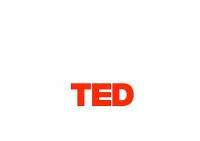TED Talks take to TV

Thought-sparking TED talks that have won legions of followers on the Internet are spreading to television stations around the world.
TED Open TV Project announced at a Web 2.0 Expo in San Francisco marked the latest step in a transformation from a private gathering of brilliant minds to a public platform for people worldwide to collaborate on "ideas worth spreading."
"Since we first launched TED Talks, our goal has been to distribute on all available video platforms; anywhere people watch video," June Cohen, executive producer of media for TED, told AFP on Wednesday.
"And the fact is, people everywhere still watch an awful lot of TV."
Annual Technology, Entertainment, Design (TED) conferences began 30 years ago in California as a haven where elite thinkers got together to explore life from challenging or unusual perspectives.
Renowned scientists, political leaders, artists, entrepreneurs and musicians have taken to the stage at the technology-focused gatherings.
TED "curator" Chris Anderson urges speakers to give the "talk of their lives" in 18 minutes.
In 2006, TED began making video recordings of talks available free online at a TED.com website.
"Putting the talks online free was risky and it turned out really well for us," Cohen said. "It turned our audience of 1,000 conference attendees into an audience of 150 million people worldwide."
Last year TED opened its doors even wider by enlisting an army of volunteers to translate talks into scores of languages and allowing private groups to host spin-off gatherings called TEDx events.
As TED talks have been posted in more languages, traffic to the website has more than tripled overall while soaring six-fold in Asia and a thousand percent in South America.
"By pursuing what seems like a risky strategy of openness the only unintended consequences have been extraordinarily positive," Cohen said.
"Our global audience has now become a global team. This has radically expanded our ability to innovate."
The non-profit Sapling Foundation behind TED is bringing insights and optimism earned by its strategy to the television project.
TED talks will be provided free to television broadcasters who are encouraged to build programs around them.
TED hopes that television broadcasts will get conference talks to people in developing countries and other places where Internet service is poor or non-existent.
"The Open TV project expands our reach greatly," Cohen said.
Dozens of television broadcasters worldwide have signed on to the TED TV project.
"TED's focus on giving a public window to 'Ideas Worth Spreading' is a natural fit for our members, the main European broadcasters," said Nicoletta Iacobacci, head of ITV & Crossmedia for the European Broadcasting Union (EBU).
"Their public-service approach is built around making the best knowledge and information available to vast audiences."
The EBU has signed on to make TED talks available for its 75 member broadcasters with a combined reach of 650 million viewers weekly, according to Iacobacci.
"As the largest association of television broadcasters in the world, the EBU is pleased to be entering into this partnership with TED and to participate in facilitating and encouraging the new global conversation."
While TED is known for grappling with bold subjects such as saving the world's oceans, its talks run the gamut of topics from whether genies should get credit for genius to a brain scientist recounting her own stroke.
"We look at ideas that delve into why the world is an interesting place," Cohen said.
(c) 2010 AFP




















